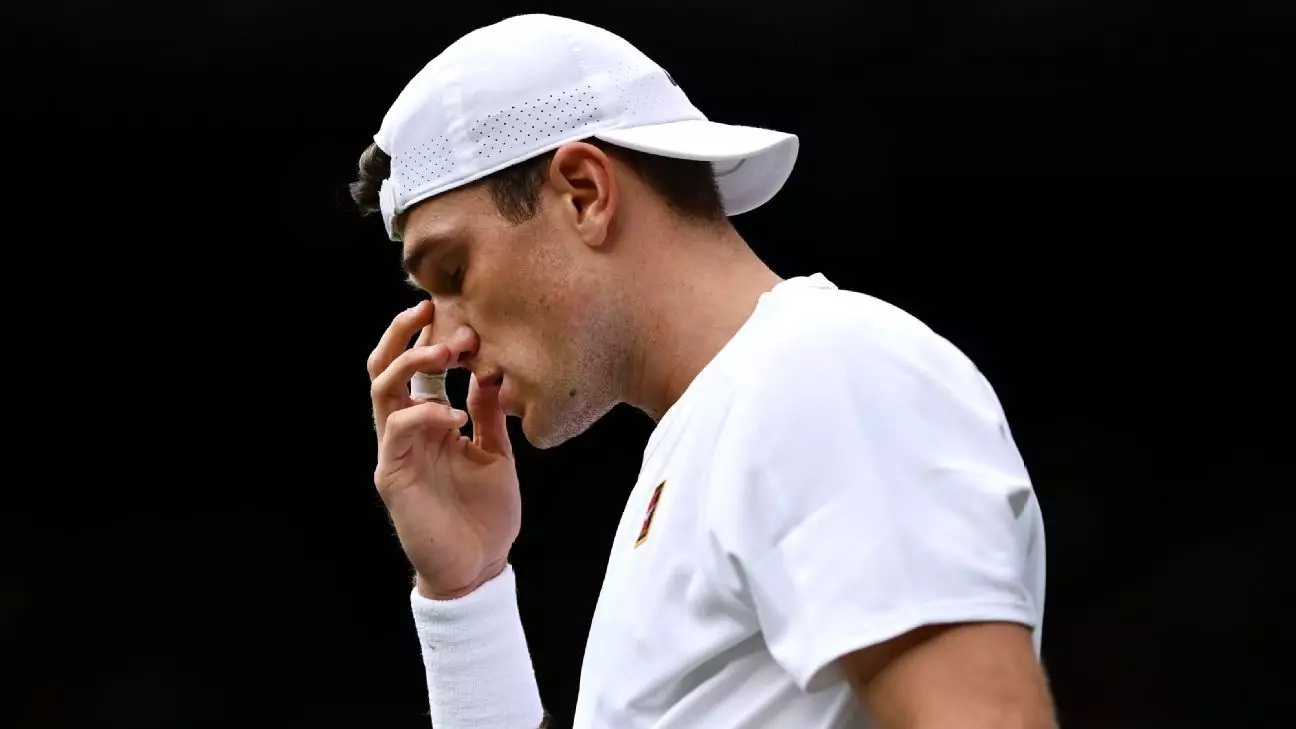In the world of professional tennis, tournaments often serve as stages where dreams are realized or shattered in the blink of an eye. Jack Draper’s recent defeat at Wimbledon epitomizes this brutal truth. Despite being a promising young talent and a local favorite, Draper succumbed to Marin Cilic in four compelling sets, exposing the harsh realities of competitive sports. His loss underscores a broader narrative—success in tennis is rarely linear or guaranteed, and even the most talented athletes must navigate unpredictable routes filled with setbacks and adversity. Draper’s failure to advance beyond the second round once again reveals the daunting gap between potential and achievement, highlighting the importance of mental resilience and perseverance in pursuit of greatness.
The Triumph of the Underdog and the Power of Comebacks
Marin Cilic’s story from injury to victory embodies the essence of resilience. After battling two serious knee surgeries over two years, few expected him to re-enter Wimbledon’s hallowed grounds with such ferocity. Yet, against all odds, Cilic delivered a masterclass in grit, unleashing his signature powerful serve and aggressive groundstrokes. His triumph is an inspiring testament to the idea that setbacks do not have to define an athlete’s career. Instead, they can serve as catalysts for remarkable comebacks. Hailed as a veteran returning from injury, Cilic’s victory reminds us that resilience often separates the fleeting from the enduring. It also highlights the unpredictable nature of sports—where hope, determination, and skill converge to produce extraordinary moments.
The Fragility and Future of Grasscourt Tennis at Wimbledon
This year’s Wimbledon, with a record low number of seeds progressing to the third round, exposes the tournament’s inherent unpredictability and the vulnerability of even top-ranked players on grass. The phenomenon of fewer seeds advancing signals a shifting landscape that favors raw talent and mental toughness over ranking or reputation. The absence of dominant players creates a chaotic yet captivating environment where emerging talents can seize opportunities and redefine expectations. However, for British fans, hopes focused on local players like Jack Draper and others, such as Cameron Norrie and Dan Evans, painted a picture of national resurgence. Sadly, injuries and inconsistent performances dashed these hopes, leaving the crowd hungry for breakthroughs that might come in future tournaments. The tournament’s landscape now hints at a potential new order—one driven by resilience rather than fixed rankings.
The Psychology of Pressure and the Art of Staying Composed
Draper’s intense moments during his match reveal much about the mental struggle faced by young competitors on the brink of stardom. Despite thrilling the crowd with powerful serves and courageous rallies, he succumbed under pressure, particularly when facing break points and crucial match points. The court’s noise and spectators’ energy, while invigorating, also serve as double-edged swords—heightening the stakes and intensifying the mental burden. Draper’s inability to close out the first set and his subsequent struggles underscore that resilience in tennis is as much psychological as it is physical. Conversely, Cilic’s calmness under pressure, exemplified by his clutch returns and strategic plays, highlights the importance of mental fortitude. In the end, victory belongs to those who can maintain composure amid chaos—a lesson that resonates well beyond the tennis court.
The Significance of Persistence in the Face of Disappointment
It’s easy to focus solely on the winners and celebrate their triumphs, but the true story often lies in the defeated. Draper’s exit is not just a loss; it’s a moment ripe for reflection. Every setback in sports offers an invaluable lesson—about humility, about perseverance, and about the necessity of relentless effort. While losing in the second round may seem disheartening, it also provides an opportunity to recalibrate, learn, and grow stronger. Cilic’s resurgence after injury isn’t just a personal triumph; it’s a beacon for all athletes who face setbacks. The ability to withstand disappointment and emerge with renewed purpose is what differentiates fleeting talents from enduring champions. After all, sports are as much about resilience as they are about skill—an enduring truth applicable to all pursuits beyond the game.
This year’s Wimbledon has demonstrated that victory is often an unpredictable gift—one that must be fought for with unwavering resolve. The players who refuse to give up, who adapt and persevere in the face of adversity, forge legacies far more meaningful than mere rankings or titles. It’s the unyielding spirit of athletes pushing past their limits that keeps the sport alive and inspiring. Whether through glory or disappointment, the true essence of tennis lies in relentless pursuit, the courage to face setbacks head-on, and the unwavering belief that resilience ultimately triumphs.


Leave a Reply